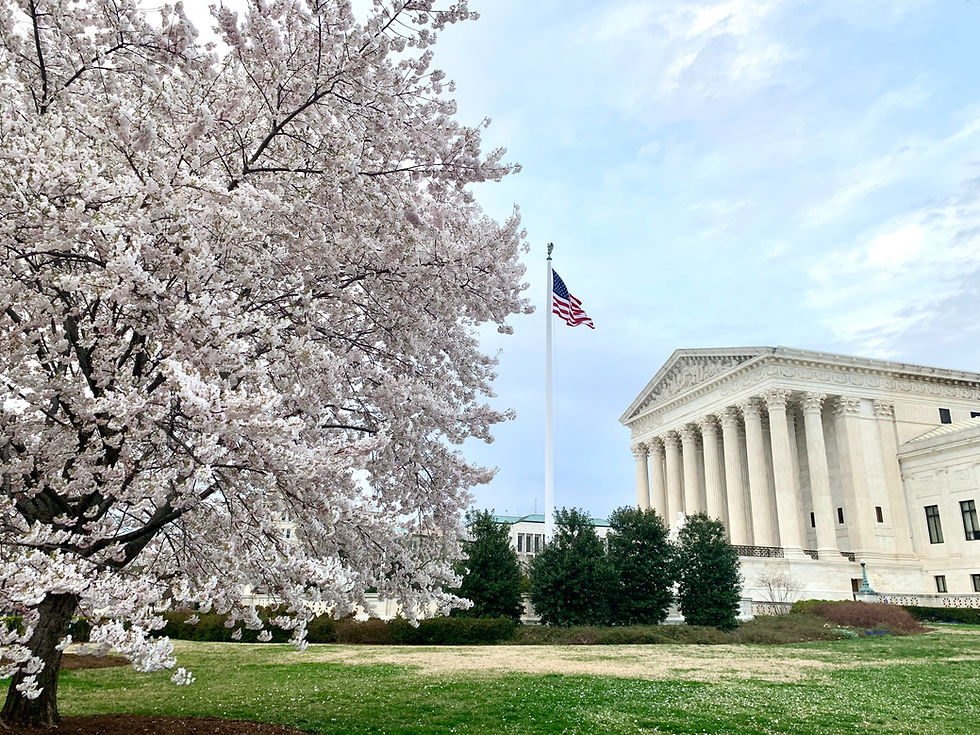
Zach Wendling
Jun 22, 2021
More than 50 years after the “war on drugs” began, lawmakers are changing their positions 180 degrees to right the wrongs some created. Their next target is changing the difference between how crack and powder cocaine are viewed in the eyes of the law.
WASHINGTON — The Supreme Court may sit directly across from the Capitol, but U.S. senators seem as out of touch with the nine justices as the justices are with Congress. Today, just a week after all nine Supreme Court justices ruled some prisoners with low-level crack cocaine convictions were ineligible for resentencing, the Senate Judiciary Committee held a hearing examining the disparity in sentencing for crack vs. powder cocaine.
Only one senator — Amy Klobuchar (D-MN) — even mentioned the Supreme Court ruling which upended most all their bipartisan good tidings around criminal justice reform in recent years.
After the First Step Act — a measure designed to reduce recidivism and ensure public safety — was passed by Congress and signed into law by former-President Donald Trump in 2018, lawmakers were determined to do more. The law made parts of the Fair Sentencing Act of 2010 — which in a compromise reduced the disparity from 100:1 to 18:1 — retroactive, but not all prisoners benefited from the resentencing.
“Make no mistake, both are addictive and dangerous, and once they reach the brain they produce similar physiological and psychological effects,” Judiciary Chair Dick Durbin (D-IL) said at today’s hearing. “But while the scientific consensus on crack has evolved over the years, our nation’s drug sentencing policy has not.”
“Confidence in equal treatment under the law is the foundation of our rule of law, and it is currently being undermined by that disparity.” — Arkansas Gov. Asa Hutchinson
During the initial wave of the ‘war on drugs,’ Durbin supported the Anti-Drug Abuse Act of 1986. It instituted the mandatory minimum sentences he now wants to upend, even calling the 1986 measure “one of the worst votes I” ever cast.
“Instead of meeting the public health crisis of addiction with care and compassion, we’ve met it with punishment and penalties,” Durbin says. “The results have been devastating.”
Durbin’s former Senate colleague, President Joe Biden, co-sponsored, partly wrote and voted for the 1986 bill as well, and he too has spoken against the vote.
Durbin and Sen. Cory Booker (D-NJ) introduced a potential solution earlier this year: the Eliminating a Quantifiably Unjust Application of the Law (EQUAL) Act. It would fully eliminate the disparity between crack and powder cocaine.
Rep. Hakeem Jeffries (D-NY) introduced companion legislation — also with bipartisan support — in the House of Representatives in March.
Devastating or not, the Supreme Court ruled a prisoner sentenced as a career offender in 2008 was ineligible for resentencing under the Fair Step Act. However, Justice Sonia Sotomayor — through her concurring opinion — offered Congress a roadmap for change: it needs to pass a new law altogether.
“Indeed, the bipartisan lead sponsors of the First Step Act have urged this Court to hold that the Act ‘makes retroactive relief broadly available to all individuals sentenced for crack-cocaine offenses before the Fair Sentencing Act,” Sotomayor writes. “Unfortunately, the text will not bear that reading. Fortunately, Congress has numerous tools to right this injustice.”
Arkansas Gov. Asa Hutchinson testified in support of Durbin and Booker’s EQUAL Act. Unlike the federal government, the Republican’s conservative state maintains a 1:1 ratio in sentencing for crack and powder cocaine.
He’s also seen the racial disparities in such incarceration firsthand. Black defendants comprised 76.8% of federal crack cocaine trafficking offenses, according to the latest available data, though a recent survey shows such offenders are predominantly white.
Unfairness undermines the criminal justice system, according to Hutchison.
“Confidence in equal treatment under the law is the foundation of our rule of law, and it is currently being undermined by that disparity,” he testified.
“This sentencing disparity is not a creation of law enforcement, it is a creation of legislators, congressmen, senators, who have come up with these laws on sentencing disparities. It is no reflection on law enforcement, it’s a reflection on us.” — Senate Judiciary Chair Sen. Dick Durbin (D-IL)
Some Republican lawmakers voiced concerns about whether reducing the disparity — albeit while acknowledging the existence of racial disparities in sentencing — would lead to more crime.
“Setting aside for a minute the disparity issue, just assume categorically that if we started sentencing cocaine generally less harshly, wouldn’t that have some risk of increasing, or at least incentivizing, drug trafficking across our southern border?” Sen. Mike Lee (R-UT) said.
Biden’s Justice Department has stated they’re supportive of the EQUAL Act, though no DOJ representative was made available to speak on the matter, despite concerns from Ranking Member Chuck Grassley.
The planned DOJ witness, according to Chair Durbin, was on a “previously scheduled family vacation.”